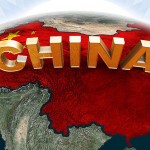19th Party Congress: Implications for China’s Future – Part I
Anyone doing business in China is aware of the importance of connections to, and an understanding of the Chinese government. It’s helpful to grasp the extent to which this power body is so drastically different from others around the world. Specifically, foreign businesses need to start thinking through the implications of the upcoming China Party Congress for their operations in China.
Our team attended an excellent round table at the Hong Kong Foreign Correspondent’s Club about the upcoming 19th Party Congress of the Chinese Communist Party (CCP), to be held on 18 October, where they will discuss political, economic, and foreign policy developments for the coming years. It’s an assembly of thousands of delegates from China’s ruling elite, including state leaders, top business executives, and military generals.
The knowledgeable – and at times quite entertaining – Adjunct Professor at the Chinese University of Hong Kong, Dr. Willy Lam, offered a number of intriguing tidbits.
He offers, for example, insight into Xi Jinping’s apparent wish to be considered a Philosopher King. “My first China state secrete to share with you tonight”, he says. “Xi Jing Ping is not an intellectual. He’s the least intellectual Chinese leader sing Deng Xiaoping. He didn’t finish high school, and his key objective as a leader is nothing more than to maintain the Communist Party.”
Indeed, the positioning for power is a central aspect of the China Model. Dr. Lam suggests there are 2 key pillars to this model.
#1 – China is a meritocracy in terms of personal relationships (as opposed to our traditional definition of meritocracy, based on merit). Officials are groomed quite carefully, and only those specifically chosen can be promoted to positions of power. Xi apparently has a predisposition not to anoint a successor. As a stark contrast to previous leaders, who groomed 5th and 6th generations of successors and put them in the Central Committee, Xi has only a limited four members with the title of Vice Minster or above.
#2 – Decision making is quite scientific (in a particular definition of scientific). The Communist Party does not need to be worried about the opposition, because most that had existed are now in jail. They also don’t need to worry about fake news, because the media – including and especially social media – is 200% controlled. So Chinese decision making can be fast, efficient, and always on point. All major decision-making bodies are centralized in totally un-transparent power bodies. And details are meticulously covered up by state propaganda.






